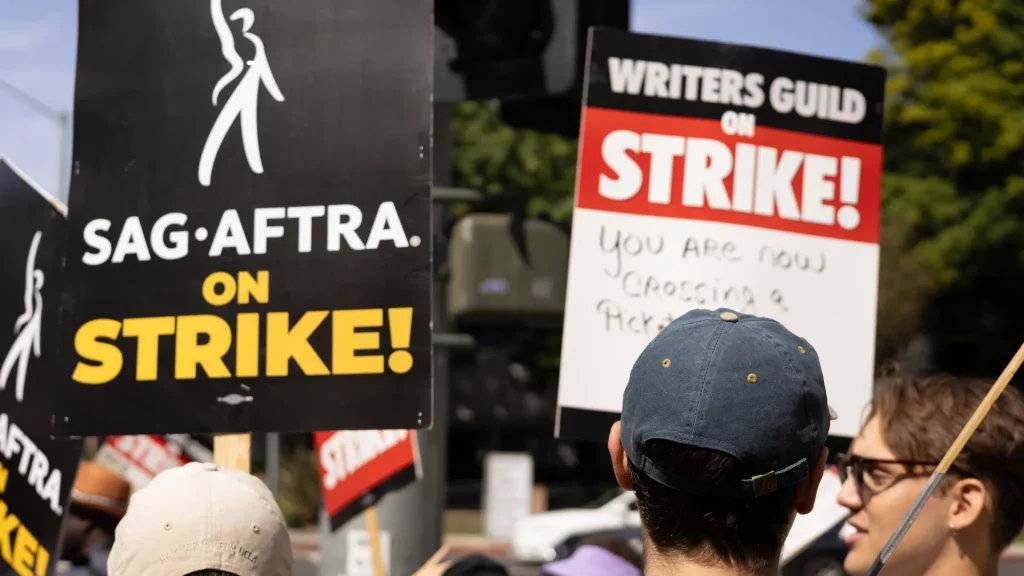The strike, which commenced on May 2 of this year, pitted screenwriters against major studios, including industry behemoths like Disney and Netflix.
In a breakthrough deal, the prolonged strike that had gripped Hollywood for nearly five months is finally approaching its conclusion. Major film and television studios, in discussions with the Writers Guild of America (WGA), have reached a tentative agreement, bringing an end to the strike that had brought much of Hollywood to a standstill.
This critical breakthrough comes after arduous negotiations between the guild, representing over 11,500 Hollywood writers, and the Alliance of Motion Picture & Television Producers (AMPTP), the studios’ bargaining group. However, this agreement, though a milestone, remains subject to approval by guild members, requiring a series of critical steps before the strike can be officially declared over.
The strike, which commenced on May 2 of this year, pitted screenwriters against major studios, including industry behemoths like Disney and Netflix. At its core were demands for higher pay from streaming services, minimum staffing requirements for writers’ rooms, and concerns about the use of artificial intelligence in content creation. This strike disrupted the production of hundreds of films and TV shows, affecting not just writers and actors but also directors, crew members, and related industries, including catering and real estate. Talent agencies laid off workers, studios suspended deals, and awards shows were delayed.
Agreements reached on most major issues
One of the central issues of the strike was compensation from streaming services, which have changed the landscape of the entertainment industry. The studios have now reportedly agreed to staff a certain number of writers for TV shows and have created a system where writers receive bonuses for popular shows on streaming platforms. Furthermore, an accord was reached on addressing concerns regarding the use of AI in the creative process, which had been a growing worry among writers.
The strike’s economic toll has been enormous, with estimates suggesting it cost the US economy around $5 billion. With the strike finally reaching its conclusion, Hollywood can start to recover from the prolonged standoff. While the agreement between the Writers Guild of America and the studios is a step toward ending the strike, another labour battle involving actors from SAG-AFTRA, representing 160,000 film and television actors, stunt performers, and more, is still ongoing.
Ratification is still pending, however.
While the finer details remain undisclosed, it’s highly likely that the agreement will receive the support of the majority of members, given the enthusiastic endorsement of WGA leaders. As momentum built during negotiations, there was the Yom Kippur holiday on Sunday as a potential deadline. The WGA has showcased the power it has been able to wield throughout this strike, largely thanks to the incredible solidarity and activism of its members. Members on both coasts and in various production hubs organised themselves into picket teams to halt productions that attempted to continue working after the strike was declared.
Hollywood is eager to resume work after a five-month pause in production. Yet, the process of getting shows and movies back on track will take time. Producers and executives have already begun to mobilise production resources as plans to resume production pick up steam. This historic development marks a pivotal moment in the labour disputes that have gripped Hollywood as it grapples with the challenges posed by new media forms and technology.
